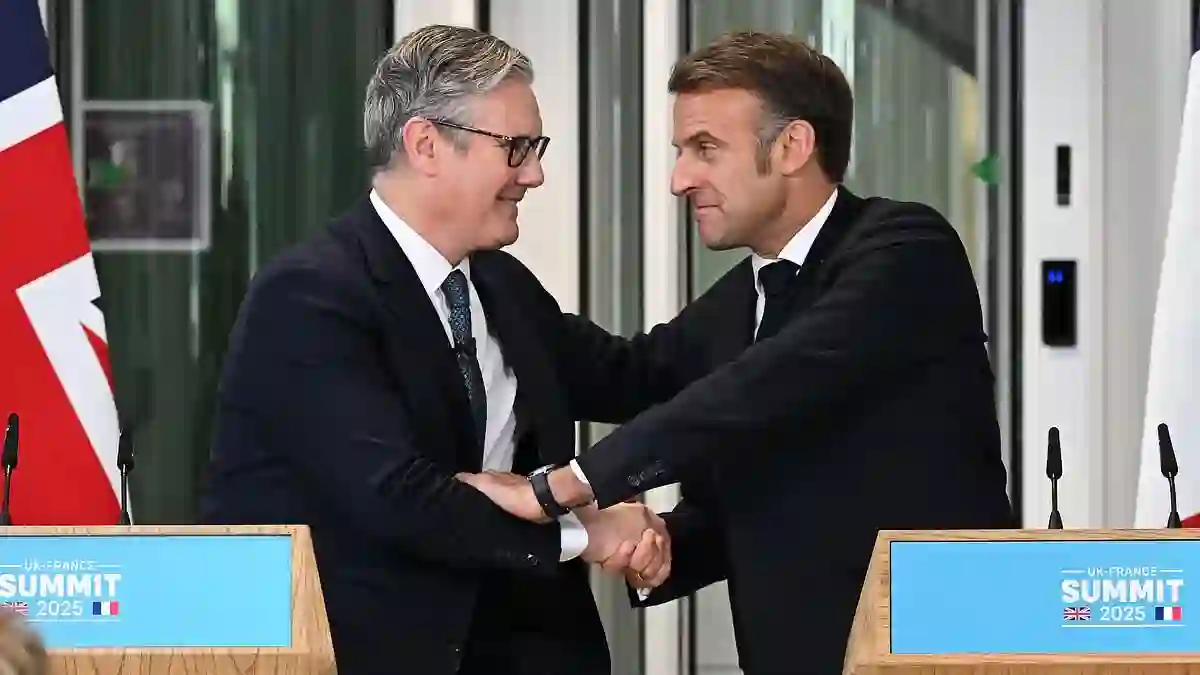When Prime Minister Keir Starmer and French President Emmanuel Macron unveiled their new “one in, one out” migrant swap deal, hopes were high for a breakthrough in the ongoing Channel crisis.
But almost immediately, cracks began to show, casting doubt over how effective this plan will really be.
The deal aims to return migrants crossing the Channel illegally by small boats back to France, while allowing an equal number of people to enter Britain legally via safe, controlled routes.
Starmer called the pilot scheme “ground-breaking” and said it was a serious attempt to tackle what he described as “an acute crisis” shared by both nations.
Still, even he admitted it might not be the ultimate solution.
Migrants Keep Crossing Despite New Deal Announcement
As the Anglo-French summit unfolded, hundreds more migrants continued their perilous journey across the Channel from northern France.
The announcement of the deal did little to stop the flow.
What’s more, the agreement itself isn’t yet fully sealed.
Eurocrats in Brussels still need to approve the deal legally, and they could block France from entering into this bilateral arrangement with the UK.
Even if migrants are sent back, they won’t be detained by French authorities.
This means some could try to make the journey again, possibly slipping through hidden in vehicles, echoing past patterns.
Legal and Practical Issues Cloud the New Agreement
There’s also the challenge of migrants launching legal challenges once selected for return to France.
This could tie up cases in courts for months or even years, slowing down the whole process.
Notably absent from the announcement was a clear plan to allow French police to intercept migrant boats before they even reach UK waters — a key component many expected.
Against this backdrop, Reform Party leader Nigel Farage urged the government to declare a national emergency and suggested interning small-boat migrants, reflecting the heightened frustration with the situation.
Rising Numbers Under Labour’s Watch Spark Criticism
Since Labour took office, over 44,000 small-boat migrants have landed in Dover — with more than 21,000 arriving just this year, marking a 50% increase compared to last year.
Starmer framed the deal as tough and practical: migrants arriving illegally will be detained and returned quickly, and for every person sent back, another will enter legally through vetted routes.
Yet he didn’t specify how fast returns would happen or how many migrants would be sent back weekly once the scheme begins, only saying it would start “in the coming weeks.”
Macron added that the deal requires legal ratification first, without committing to a timeline.
Opposition Parties Slam Deal as Ineffective
Conservative politicians were quick to dismiss the deal as a “total joke.”
Shadow Home Secretary Chris Philp accused Starmer of undoing previous immigration deterrents and creating loopholes for people smugglers.
Kent MP Katie Lam was blunt: swapping one migrant arriving illegally for 17 on legal forms won’t deter dangerous crossings.
She argued only detention and deportation will stop the crisis and accused Labour of leaving the UK vulnerable.
Macron Points to Brexit as a Root Cause
Speaking at the launch event, Macron emphasized that other European countries like Spain and Greece will need to accept migrants returned from France if those migrants originally entered Europe through their borders.
He also blamed Brexit for making the Channel crisis worse, reflecting ongoing tensions.
Macron said many in the UK believed Brexit would make it easier to fight illegal immigration, but the reality has been different.
Farage Highlights Security Concerns and Calls for Emergency Action
Farage was present as 78 migrants were transferred from a dinghy to a Border Force vessel in the Channel.
He raised fears about potential security risks among migrants, expressing concern they could be criminals or terrorists.
He criticized the government for housing migrants in hotels and allowing them to work in the gig economy shortly after arrival.
Farage called for a national security emergency and suggested internment facilities, describing the new deal as “farcical” and a humiliation for Starmer.
French Concession Could Signal a Shift in Cooperation
Despite the criticism and uncertainties, this new returns agreement marks a significant shift for France, which had previously refused such deals under Conservative UK governments.
Migration expert Sunder Katwala from British Future said that if scaled up significantly, the plan could drastically reduce small-boat crossings and undermine people smugglers’ business models.
What Happens Next?
The success of the deal hinges on legal approval by the European Commission, the practical ability to return migrants efficiently, and cooperation from other European countries.
For now, the Channel crisis continues, and the new plan faces an uphill battle against the reality on the ground.



